Peace remains a distant dream in Afghanistan
- Published
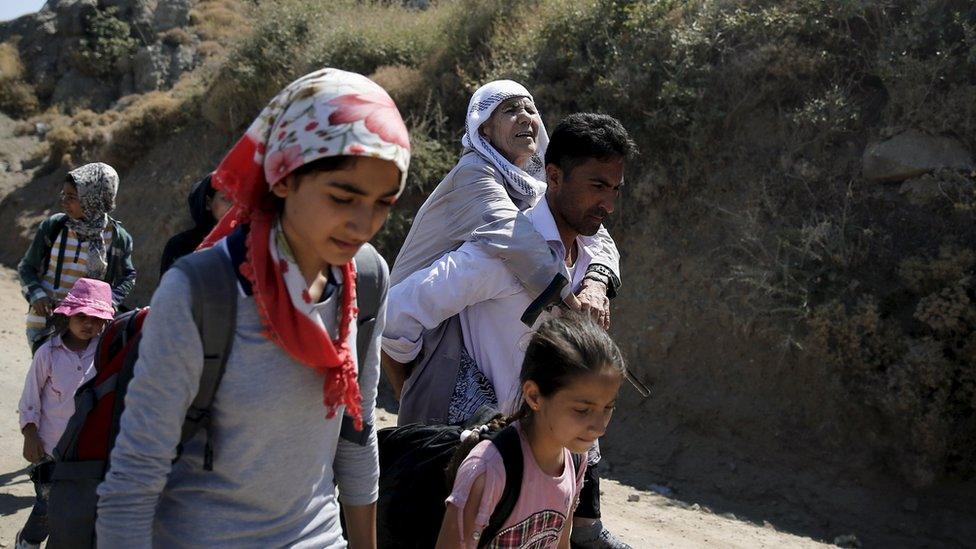
This country has been at war for 40 years. As a result, Afghans form what's widely reported to be the second largest group of people trying to make their way to a new and more peaceful life in Europe. Only Syrians outnumber them.
In Kabul, a man of 75 stands looking at the heap of rubble where his house stood until it was destroyed by a Taliban bomb last month. Now he has nowhere to live, and exists on the charity of friends.
Mohammed Nasim's two nephews were killed and 17 other family members were injured when a tonne of explosives, presumably intended for the army intelligence barracks opposite, went off in the middle of the night. Half a dozen houses were wiped out, and more than 200 people killed or injured.
"There's no future for me or my family in this country," Mohammed Nasim says. "I don't feel safe here any more. They have to give us asylum somewhere else. This will happen somewhere else tomorrow, and we can't get away from it."
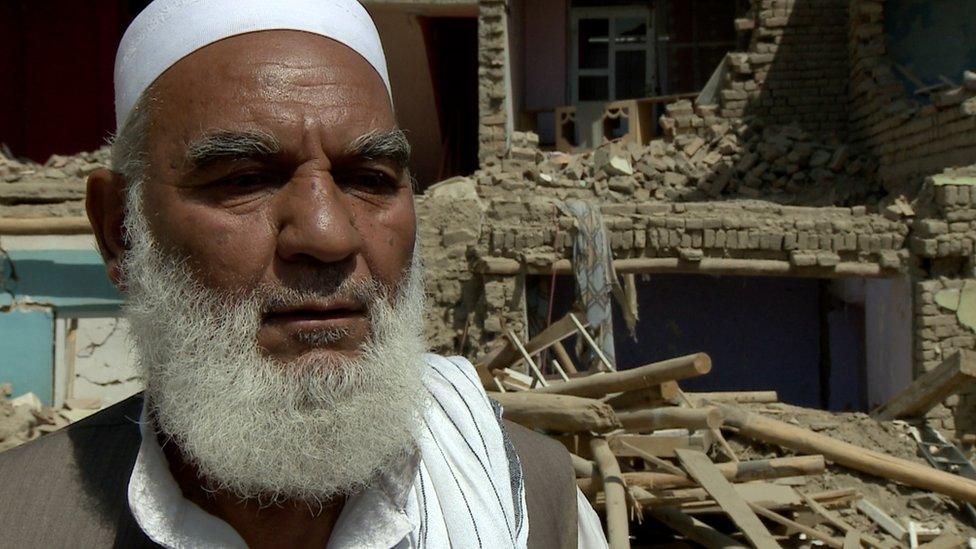
Seventy-five-year-old Mohammed Nasim sees no future in Afghanistan
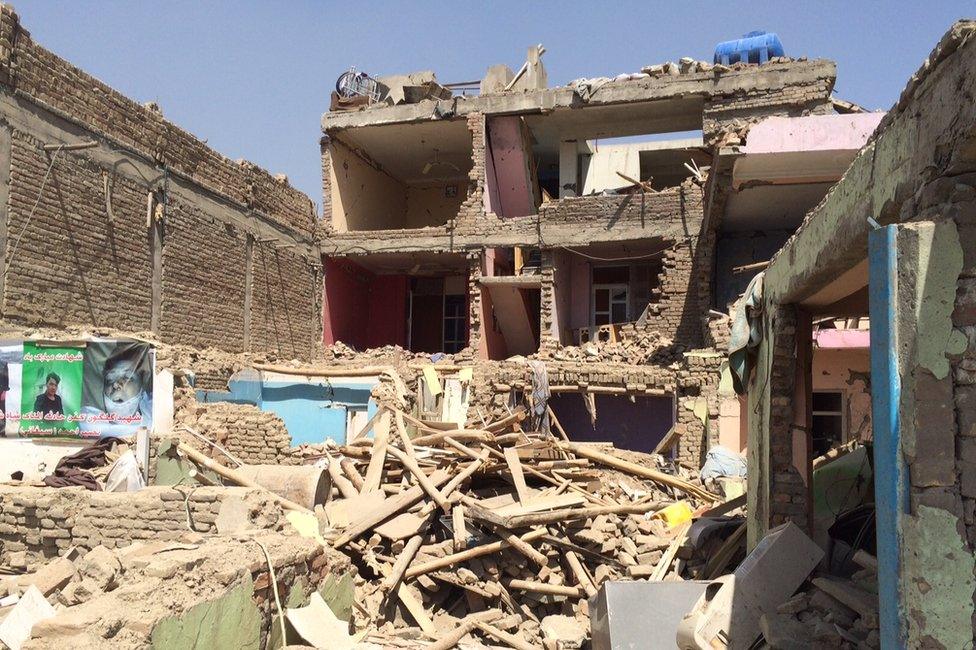
His house was destroyed by a Taliban bomb
Realistically, he's too old to leave. But thousands upon thousands of younger people feel there's no future for them here in Afghanistan. They try to get visas for Iran, and then make their way from there into Turkey, and on to Greece, Bulgaria or Romania.
It's arduous and the dangers can be great, but they believe it's better than hanging on in a country that is ceaselessly at war.
No winners
The only effective way to stop them would be to make Afghanistan peaceful and prosperous again - something that the Russians, the Americans, the British and a dozen other countries have not succeeded in doing since the 1970s.
So how close is Afghanistan to peace? The sad answer is that it doesn't seem any closer than it has for years past.
The Taliban certainly aren't winning this war. The trouble is, neither is the government.
Kabul today is a city in a state of heightened nerves. Crazy rumours do the rounds continually. One particularly strong one is that the bomb that destroyed Mohammed Nasim's house was dropped deliberately by a Pakistani or even an American plane.
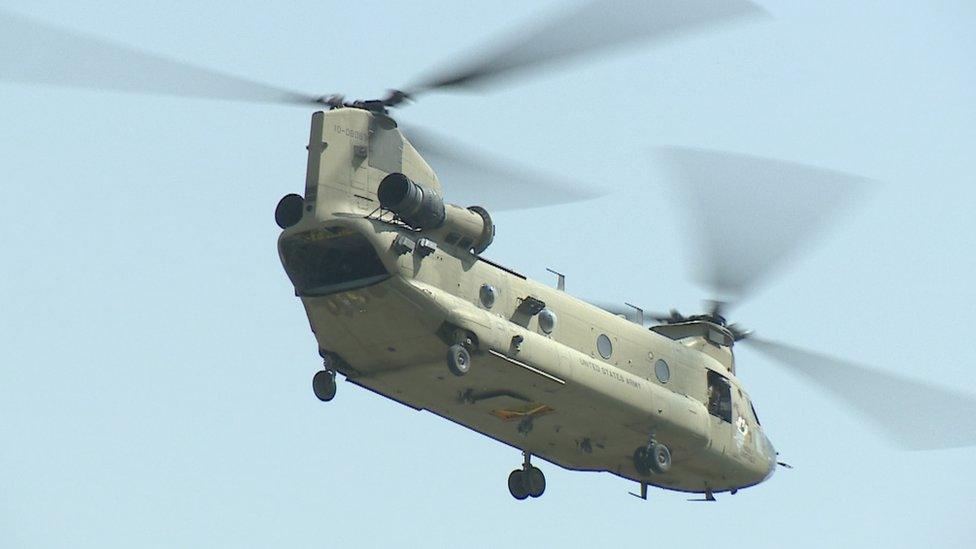
Chinook helicopters constantly fly over Kabul, ferrying dignitaries and foreign soldiers from the airport to the centre of town
The level of threat is high. Ministers, officials and the relatively few Western soldiers who are still based here travel round Kabul by helicopter to avoid the possible dangers of the streets. They clatter backwards and forwards overhead, hundreds of feet above the gridlock and heat of the Kabul streets.
The past few weeks have seen a big increase in Taliban attacks. Yet the Taliban seem no closer to achieving their aims here.
They had assumed that over the past year, when the American, British and other forces withdrew and a new and untried President, Ashraf Ghani, had come to power, would be their big chance: the government would never be weaker, and they themselves would never be stronger.
But it hasn't turned out that way. The Taliban have captured six district centres, it's true - but they've lost five to the government forces.
According to European diplomats, the police intelligence force, the NDS, has managed to stop at least a fifth of all Taliban attacks. This has been one of the big success stories of the past year.

Who are the Taliban?
Emerged in Afghanistan in 1994
Mainly supported by ethnic Pashtuns
Toppled after US-led invasion of Afghanistan in 2001
Former fugitive leader Mullah Omar died in 2013 but his death was not revealed until July 2015

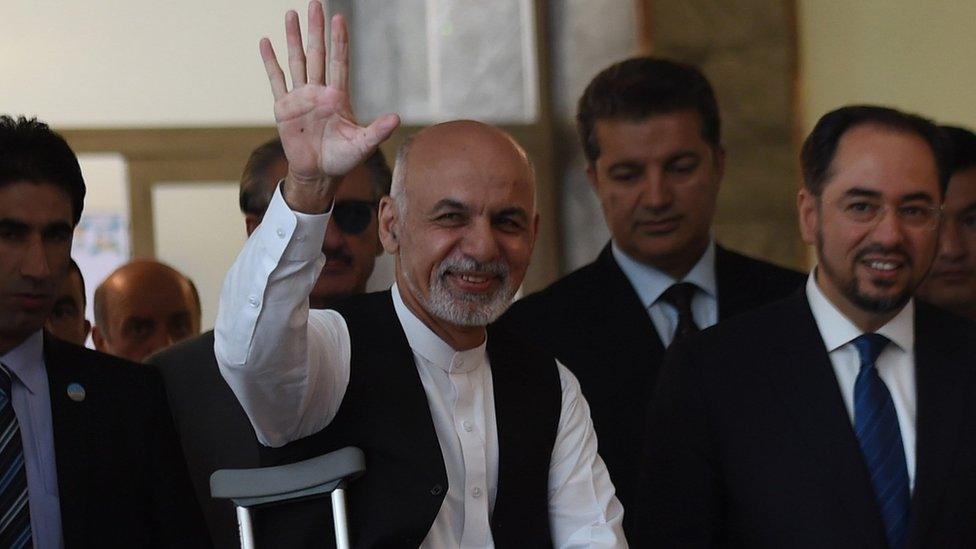
Ashraf Ghani was sworn in as president of Afghanistan in September 2014
Now a bitter split has opened up within the Taliban leadership. The top leaders managed to hide the news for two years that their leader, Mullah Omar, had died of TB in 2013. As soon as it leaked out, last July, there was uproar within the Taliban.
One faction now wants Mullah Omar's son and brother to take control of the movement, while another wants Omar's deputy, Mullah Akhtar Mansour, to succeed. In the meantime there's a steady flow of defections to so-called Islamic State, which is still only a bit-part player in Afghanistan.
Manam Niazai, a leading Taliban figure who supports Mullah Omar's family, told me he thought the defections would be temporary.
"Most of the people who have switched to Islamic State in the provinces of Nangahar, Helmand and Farah have done so because of Mullah Mansour, the man who has declared himself to be the new Taliban leader," he said. "If there's a new leadership there'll be no place for Islamic State. These are all our friends, and they'll come back to us again."
He insisted that there were no real links between the Afghan version of Islamic State, and the movement in Iraq, Syria and elsewhere.
You might think that a major split in the ranks of the Taliban would help the government. In fact it makes things even harder. The government of President Ghani badly needs to open substantive peace talks with the Taliban - it's the only way forward. But for now there's no-one to talk to.
People like Mohammed Nasim, the victim of the Taliban bomb, feel this proves that Afghanistan will never be at peace. And until that perception changes, the flood of Afghans to Europe will continue.